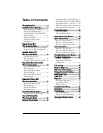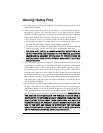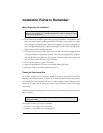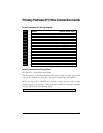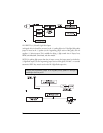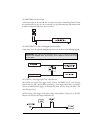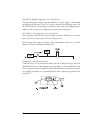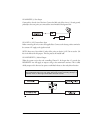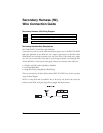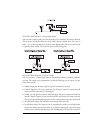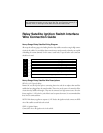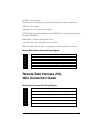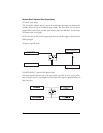
©
2003
Directed Electronics, Inc.
5
Installation Points to Remember
Before Beginning the Installation
➤
Please read this entire installation guide before beginning the installation. The installation of this
remote start system requires interfacing with many of the vehicle’s systems. Many new vehicles
use low-voltage or multiplexed systems that can be damaged by low-resistance testing devices,
such as test lights and logic probes (computer safe test lights). Test all circuits with a high-quality
digital multi-meter before making connections.
➤
Do not disconnect the battery if the vehicle has an anti-theft-coded radio. If equipped with an
air bag, avoid disconnecting the battery if possible. Many airbag systems will display a diagnostic
code through their warning lights after they lose power. Disconnecting the battery requires this
code to be erased, which can require a trip to the dealer.
➤
Check with the customer on status LED location.
➤
Remove the domelight fuse. This prevents accidentally draining the battery.
➤
Roll down a window to avoid being locked out of the car.
Finding the Tachometer Wire
To test for a tachometer wire, a multimeter capable of testing AC voltage must be used. The
tachometer wire will show between 1V and 6V AC. In multi-coil ignition systems, the system can
learn individual coil wires. Individual coil wires in a multi-coil ignition system will register lower
amounts of AC voltage. Also, if necessary, the system can use a fuel injector control wire for engine
speed sensing.
Common locations for a tachometer wire are the ignition coil, instrument cluster, fuel injectors, or
engine computers.
How to find a tachometer wire with your multimeter:
1. Set to ACV or AC voltage (12V or 20V is fine).
2. Attach the (-) probe of the meter to chassis ground.
IMPORTANT! Do not test tachometer wires using a test light or logic probe! This will
damage the vehicle.
IMPORTANT! This product is designed for fuel-injected, automatic transmission
vehicles only. Installing it in a standard transmission vehicle is dangerous and is
contrary to its intended use.





